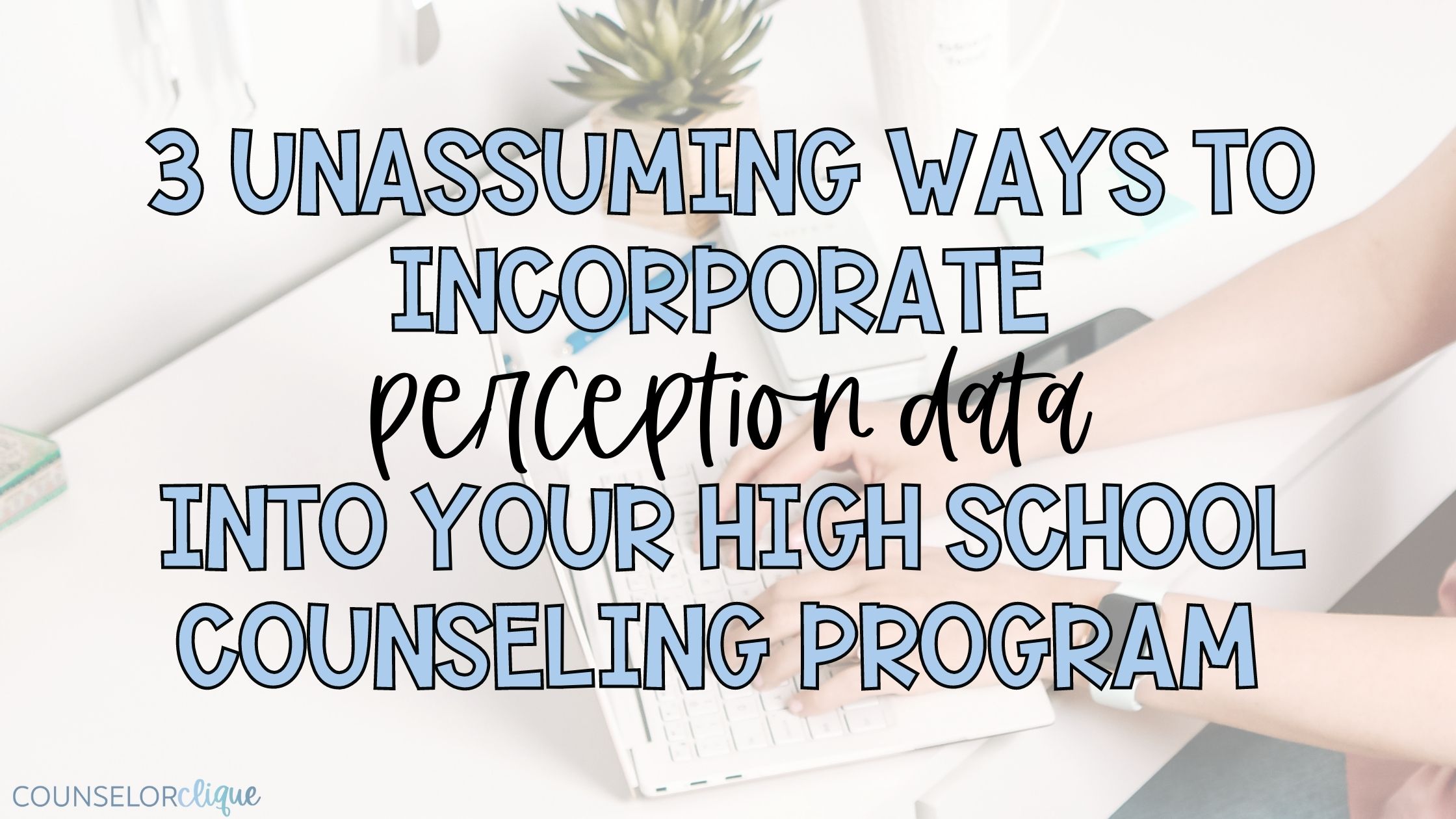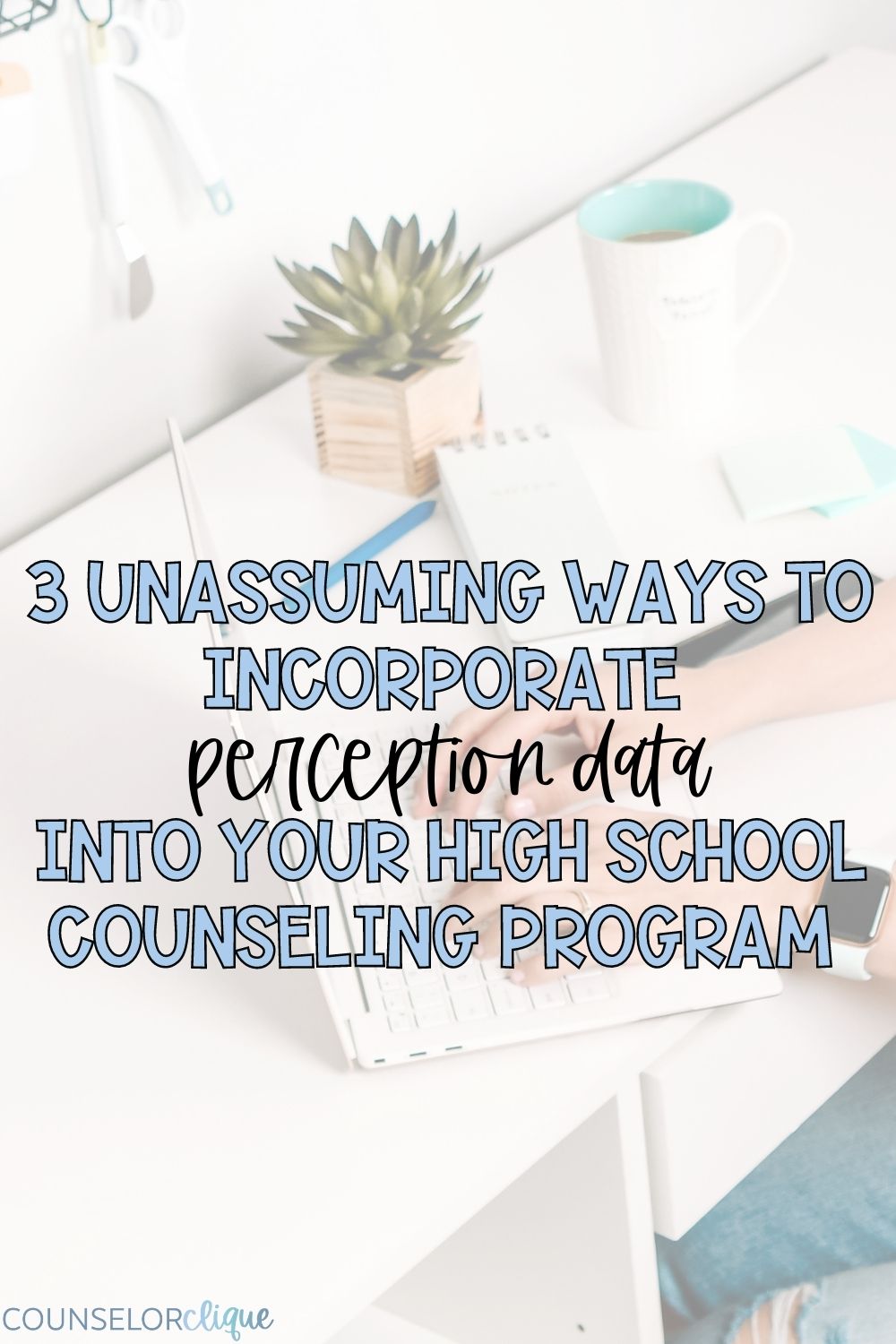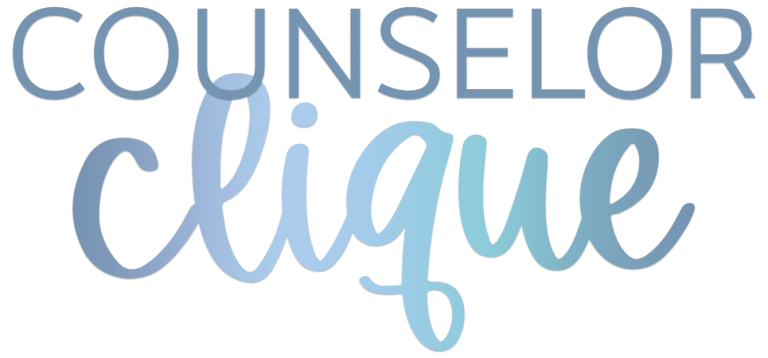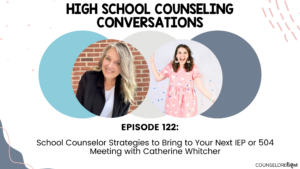Perception data answers the question, “How are students different in their thoughts, attitudes, skills, behaviors, or knowledge because of what we are doing as school counselors?” Perception data may be the type of data collection that comes most naturally to us as high school counselors. We are more comfortable listening to the stories than disaggregating the numbers.
Are we remembering to use this perception data to support our initiatives and drive our school counseling program forward? Here are “3 Unassuming Ways to Incorporate Perception Data Into Your High School Counseling Program.”

1- Use pictures to share perception data.
Pictures tell stories, and stories are compelling.
I ran an attendance mentorship initiative in my school once. Students were paired with an adult mentor in the school to develop stronger relationships in hopes of increasing their attendance rates. When we’d share updates on the initiative at faculty meetings, I’d show pictures of the teacher/student mentor partners. At the end of each week, I’d send an email with pictures along with the outcome data.
Once, I shared pictures of a Leadership Small Group I was running for my high school student ambassadors at a school counseling advisory council meeting. A parent on the committee approached me when it was over and asked if her family could fund t-shirts for the group. This was a completely unexpected (yet welcomed) surprise!
There’s something about seeing a face with the story that moves people to action. Even if the action is just buy-in, attitude changes, or belief changes.
2- Use student testimonies to share perception data.
Use ASCA’s updated Mindsets and Behaviors if you’re developing your own pre and post-test to measure student success. These are the standards from which you’re deciding if students have grown in the area you are equipping or teaching them in.
In my School Counseling Small Group Data Spreadsheet, I have a tab for collecting students’ perception data. They are most likely ranking or rating things on a pre and post-test, but open-ended questions on these assessments are amazing for collecting quotes and stories from students.
Some examples of open-ended questions that you may be asking students before or after a small group or a lesson may include things like:
What do you hope to learn in this small group?
How did you grow or change as a result of this small group?
How did your attitude change towards _____ as a result of _____?
What is something you now know about _____ that you didn’t know before you participated in this lesson?
What is the biggest takeaway you gained from participating?
What is one thing you’d tell a friend about this experience?
3- Use teachers’ stories to share perception data.
If you want other adults in your school building supporting your school counseling program, you have to use their stories! I can’t even begin to tell you the effectiveness of adults as peers sharing stories with one another.
It is difficult to shift the mindset of a school if “we’ve always done it this way” or “the person before you did it this way.” When you’re trying to shift administrators’ and teachers’ attitudes to be more supportive of your school counseling program, consider the power of storytelling.
Your stakeholders will trust you more (especially when you’re needing more time with students) when they know what you’re doing is effective.
You can use quotes from teachers in advocacy emails or emails with results data from an initiative you ran. Ask a teacher to share their experience at a faculty meeting about how a student changed as a result of individual or small group counseling with you. Visit a department meeting to get your foot in the door and have one teacher share about their experience when you did a classroom lesson with their students.
Your validity increases when people have seen or found success and then share it with others. When teachers share testimonies about your school counseling program or initiatives will establish trust in what you’re doing.
Download this free High School Counseling Data Collection Guide to help you brainstorm places to start collecting some simple data in your school, and let’s take some data collecting action!






